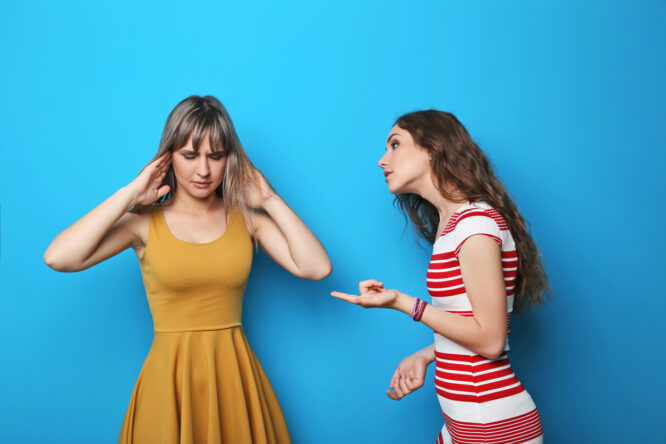
Ever felt weirdly emotional over a celebrity breakup? Or found yourself mourning the death of someone you’ve never met? You’re not alone—and there’s actually a lot of psychology behind it. From social mirroring to something called parasocial relationships, our brains form strong emotional bonds with public figures, even if the connection is completely one-sided. Here’s why those feelings feel so real—and why they’re more human than you think.
1. Our brains treat familiarity like friendship.
Seeing someone regularly—whether it’s on TV, Instagram, or in interviews—makes your brain start treating them like someone you know. It’s a phenomenon called the “mere exposure effect,” and it’s why the more we see a face, the more we tend to trust it.
Even if you logically know you don’t know them personally, your brain starts creating a sense of closeness simply because of repeated exposure. It’s the same reason people feel loyal to news anchors or podcast hosts—it’s not just entertainment, it’s perceived proximity.
2. Parasocial bonds feel one-sided, but emotionally real.
Parasocial relationships are the emotional connections we form with people who don’t know us at all. Think favourite actors, athletes, or YouTubers. Even though it’s one-sided, it can still trigger real emotional responses like comfort, empathy, and even grief. These connections aren’t imaginary—they engage the same emotional systems as real friendships. Your brain doesn’t necessarily distinguish between “I care about them” and “they care about me” when feelings are involved.
3. We see celebrities during emotionally loaded moments.
Whether it’s a tearful Oscar speech, a raw social media post, or a powerful film role, celebrities often show up in emotionally heightened contexts. That repetition wires us to associate them with powerful feelings. Even scripted moments can blur into emotional memory. You might know it’s acting, but your body still reacts. And when you revisit those moments, the emotional familiarity deepens your attachment to the person involved.
4. They represent ideals we’re drawn to.
Often, we don’t just admire celebrities—we identify with what they symbolise. Maybe it’s confidence, resilience, humour, or elegance. Whatever it is, we latch onto those qualities and project our own hopes onto them. It’s not necessarily about envy; it’s about resonance. When someone embodies traits we value or long for, we naturally feel closer to them, even if they’re just an image on a screen.
5. Watching them feels like a shared experience.
Whether it’s watching a show every week, listening to the same music for years, or growing up with a certain celebrity on your TV screen, that repeated exposure becomes part of your own timeline. It’s a shared reference point—even if they’re unaware of it. We tie personal memories to them, like “This song got me through a breakup” or “I watched her films every summer as a kid.” The bond feels real because it’s attached to real chapters in our own lives.
6. We know a lot about their lives—sometimes too much.
Celebrity culture invites us into the most intimate corners of their lives: who they’re dating, what they eat, how they’re coping with loss. Even when it’s curated, it still creates a false sense of emotional intimacy. It feels personal, like catching up with a friend, even if it’s entirely broadcast. That illusion of closeness fuels the connection, even when we know it’s constructed for public consumption.
7. We mirror the emotions we see on their faces.
Humans are hardwired for empathy, and our brains mirror the emotions we see in other people. If a celebrity cries, we tear up. If they smile, we feel a small lift. It’s called “emotional contagion,” and it’s completely automatic. This mirroring strengthens the illusion of emotional connection. The more we see someone emote, the more we feel aligned with them. It’s not just watching—it’s experiencing with them, even from afar.
8. They feel stable in a chaotic world.
Familiar celebrities can become anchors. When the world feels unstable, tuning into a familiar face, even if it’s just a cooking video or red carpet interview, can offer a sense of comfort and predictability. It’s got little to do with worship, most of the time, and more to do with control. Their reliable presence gives us something familiar to hold onto, especially during periods of personal or societal change.
9. They often narrate our lives through music or film.
When an artist puts words to something we’ve felt but couldn’t explain, it builds an intense emotional bridge. Suddenly, it’s not just entertainment—it feels like understanding. That feeling of “They get me” is powerful, even if it’s just through lyrics, a character, or a performance. It makes the connection feel personal, and that feeling sticks around long after the credits roll.
10. Social media creates direct (but filtered) access.
Unlike older eras of celebrity, today’s stars talk directly to fans. Comments, livestreams, casual posts—they all simulate intimacy. Even if the interaction is entirely managed, it still feels personal. That faux-closeness creates a kind of micro-interaction that tricks the brain into believing there’s a mutual bond, even if the celebrity never sees your reply. The illusion still has emotional weight.
11. We process loss as if we’ve lost someone we knew.
When a beloved celebrity dies, many people feel a genuine sense of grief. That reaction might seem dramatic to outsiders, but it’s a completely valid response to the loss of someone who was part of your emotional world. You don’t have to know them personally to understand and appreciate what they represented in your life. Grieving a celebrity is often grieving a time, a feeling, or a part of yourself they helped you connect to.
12. We use them to explore identity.
We often try on parts of celebrity personas as we figure out who we are—fashion, values, lifestyles. It’s part of the social learning process. Especially during adolescence, this can shape our sense of self in real ways. Following someone who reflects something you aspire to, or reminds you of who you are, can help form identity scaffolding. It’s not about copying them. It’s about locating yourself through comparison and admiration.
13. They help us feel seen, even from a distance.
At the core of most parasocial bonds is this: we feel seen. A character says something that resonates, a singer tells your story, or an actor reflects a part of you that you’ve never expressed. That kind of validation sticks. Even if they don’t know you exist, the emotional impact is real. It’s less about them, and more about what they awaken in you—and that’s why those connections are often stronger than logic would explain.




